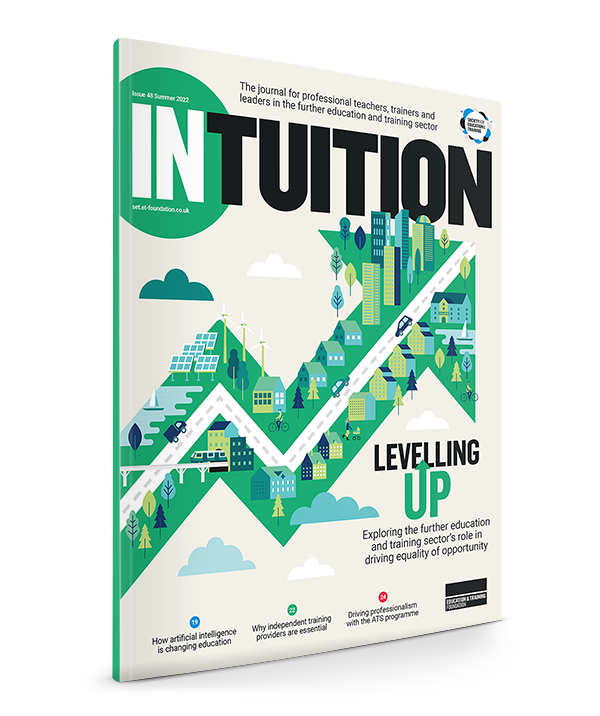inTuition taster: The power of partnership
Collaboration between the Royal Navy and Team Fisher, a consortium made up of industry, technology, and education providers, is helping to transform the education and training both new and experienced navy personnel receive, with a strong emphasis on practical development. David Adams finds out more.

In 2020, the Royal Navy signed a 12-year, £1.2 billion contract, known as Project Selborne, with an education and training consortium called Team Fisher. Its members include Capita, Raytheon, Fujitsu, Elbit Systems UK and the University of Lincoln. In total, Project Selborne covers the work of more than 1,000 educators delivering more than 650 different training courses at the navy’s facilities and bases around the UK.
The new contract, which came into effect in April 2021, forms the core of the navy’s strategy to modernise training and education, moving away from more traditional, didactic teaching to embrace the use of active learning and a greater emphasis on the needs of individual learners.
The contract includes delivery of Phase 1 training for new recruits: a 10-week militarisation course delivered at HMS Raleigh – an onshore training facility near Plymouth – including some seamanship, navigational theory, weapons training and physical training. Initial Naval Training for Officers is conducted at Britannia Royal Naval College (BRNC), Dartmouth, and is a 30-week course that provides comprehensive induction into naval life as an officer.
Phase 2, or professional training, lasts six months on average, with some courses lasting much longer. It is focused on specialist individual learning, tailored to roles that will be performed at sea, such as weapons or communications engineering. Phase 2 individual training is delivered at a number of Royal Navy training establishments and operational bases across the UK.

Michelle Hall is a training delivery team manager at HMS Collingwood, the navy’s largest onshore training facility, near Portsmouth. At the start of her career she became the navy’s first female weapons engineer mechanic in 1990, and served in the navy for 23 years. She started working as a trainer eight years ago. She says the navy’s training is very different from her own early days in the service, when, she says, it could be summed up as “memorise everything and there’s an exam at the end”.
Today, her team runs 15 to 22 classes a year, with each class containing about 16 students in mixed-gender groups, whose ages range from 16 to 39. “Greater gender diversity in the navy is a real positive that I have noticed since I joined,” Hall says.
Team Fisher educators also deliver Phase 3 training courses, which support people to progress throughout their career. This training responds to the latest feedback from frontline environments, ensuring sailors arrive with the right skills for the latest operational situations.
Today, most staff working for Team Fisher are educators, says Ben Houlihan, Capita and Team Fisher deputy director of learning design and development. “We want educators within the navy to see themselves as part of the wider training and skills landscape,” he says.
He also highlights some of the key partnerships that support Team Fisher’s work: with technology provider DoiT, to support learners with neurodiversity; with learning platform How2, giving educators access to learning structures; and with the Society for Education and Training (SET) – Team Fisher offers SET membership to its educators, enabling access to professional development tools and other resources. “This relationship with the navy is an exceptional example of collaboration,” says Houlihan.
Team Fisher has certainly created a new way of delivering education on a large scale in a military environment.
David Adams is a freelance journalist

Find out more about inTuition
inTuition is SET’s quarterly professional magazine supporting members' access to CPD resources and the latest sector and research news. It combines sector news with educational research and exciting practical developments and ideas in education and training.
Find out more





